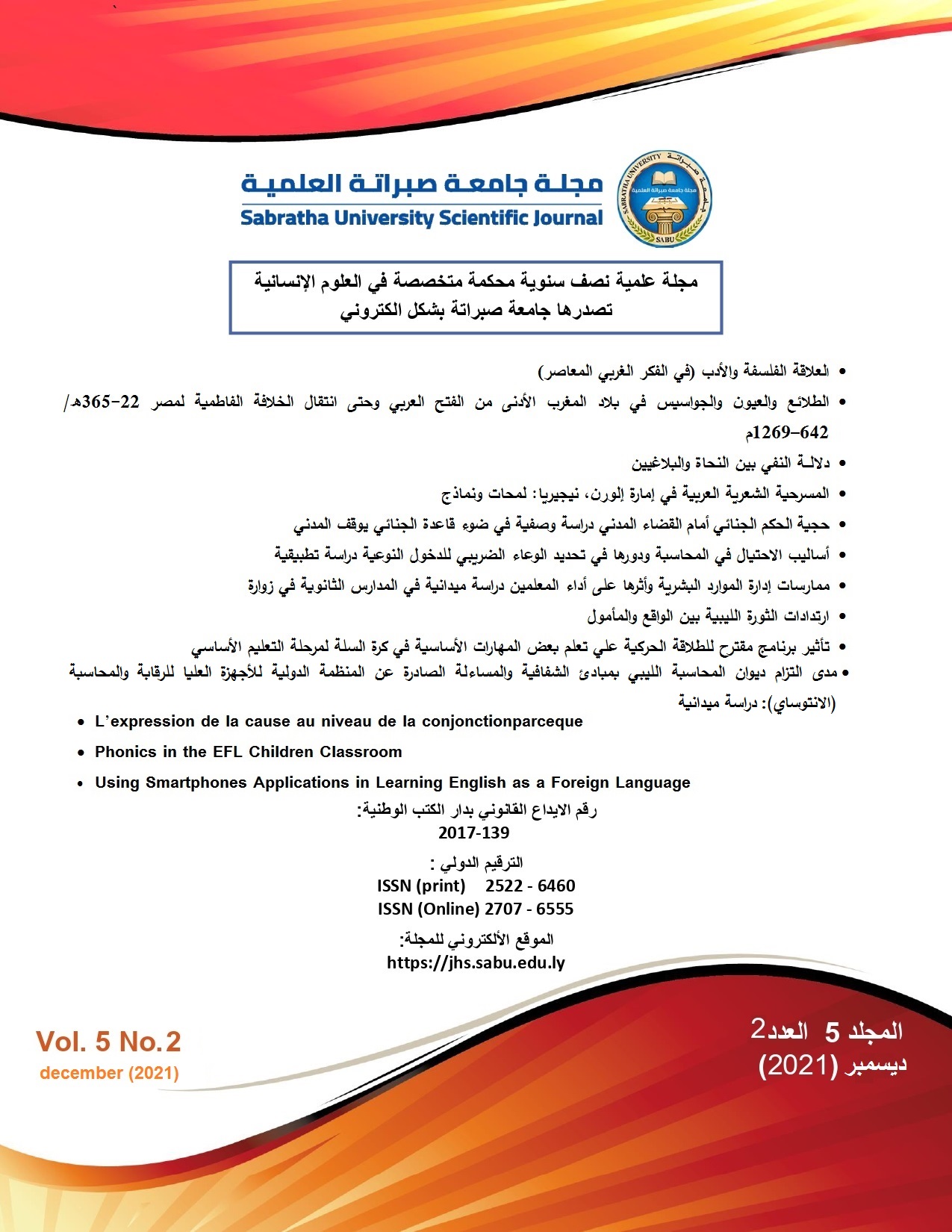الصوتيات في فصل تعليم اللغة الانجليزية كلغة أجنبية للأطفال
الكلمات المفتاحية:
Phonics، Synthetic، analytic، whole language approachالملخص
Phonics is an instructional approach for teaching reading for children. It involves sound-letter correspondence for developing children’s coding, blending, sounding and reading skills. This new approach has been recently introduced into the Libyan context through the new textbooks for grades one, two, three and four. This paper therefore discusses the principles, types and practices of this new approach in EFL contexts (e.g. Libya) and explores the challenges that teachers may encounter in its implementation in these contexts. It also presents a critical review of the previous research on phonics and highlights the importance of developing EFL teachers’ understanding of its principles and practices for a successful introduction of this approach. The useful insights outlined in this paper can help in describing and diagnosing the current situation of Libyan EFL primary school teachers and classrooms and the extent to which they are ready for adopting phonics as an approach of instruction in teaching reading for grades one, two, three and four. This may lead to certain follow-up appropriate actions for better teaching of the new textbooks for these graddes. Moreover, the proposed guidelines and models for implementing phonics may benefit EFL teachers in other contexts as well.
التنزيلات
التنزيلات
منشور
كيفية الاقتباس
إصدار
القسم
الرخصة
الحقوق الفكرية (c) 2022 مجلة جامعة صبراتة العلمية

هذا العمل مرخص بموجب Creative Commons Attribution-NonCommercial 4.0 International License.


